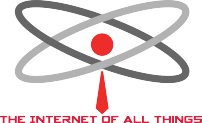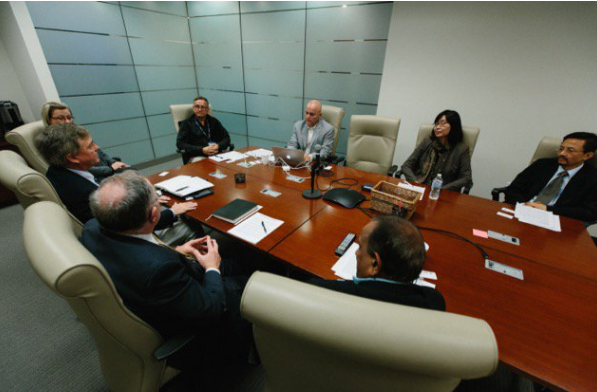Participants in a recent roundtable discussion with Automation World saw Georgia Tech engineering, science and research experts sharing their thoughts on the trajectories and effects of artificial intelligence (AI) and machine learning (ML).
Issues that were discussed at this meeting ranged from the relevancy of data to data formats to data security and privacy, and the impact of data on industry.
According to a report in Automation World by David Greenfield, Director of Content, Automation World, he was invited to moderate the session by Alain Louchez, Managing Director of Georgia Tech’s CDAIT (Center for the Development and Application of Internet of Things Technologies) on how computer science and data could impact the future of industry.
In addition to Louchez, participants in the roundtable included Jeff Evans, Principal Research Engineer at the Georgia Tech Research Institute (GTRI) and Director of the Digital Transformation of Things at the Georgia Tech Center for Advanced Communications Policy; Dr Haesun Park of the School of Computational Science and Engineering; Dr Umakishore Ramachandran of the School of Computer Science; Dr Yan Wang of the School of Mechanical Engineering; and Dr Margaret Loper, Chief Scientist, Dr Elizabeth Whitaker, Principal Research Engineer; and Barry Drake, Senior Research Scientist at the Information and Communications Laboratory at GTRI.
According to Dr Park, Big Data did not mean “all relevant data”. She said one needed to first understand other angles of data such as the four Vs — volume, variety, velocity, veracity.
Another delegate Dr Loper pointed out that data security and privacy were of the utmost importance, and needed to be provided at the very start, by design, adding that tremendous achievements were made in the last few years in industry, academia and standards organisations to ensure data confidentiality, integrity and availability, but these areas would “always remain a work in progress.”
To understand how data should optimally be handled to have a meaningful impact for industry, Wang said there must be ongoing conversations and collaborations across three communities of knowledge relevant to industrial data—computer scientists, data scientists and domain experts.
The participants in the roundtable agreed that the education system will have to play a big role in preparing people to be part of the data analytics-enabled workforce of the future, which is coming at us fast.
According to Evans, for data analyses to be successful, people need to understand communication protocols in order to have the ability to assess the systems they’re interacting with and create dashboards for broad use.
According to Louchez when he looked at some failing IoT initiatives, he saw that “they’re led as insulated activities and not seamlessly blended into the whole company. IoT, by its nature, is an integration—internally and externally. So if it’s not part of a bigger picture within the company to begin with, it’s going to fail, he added.
To read the rest of the article click here.
Source and Image Credit: Automation World

